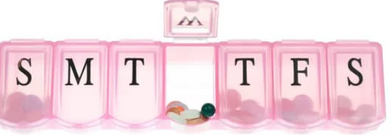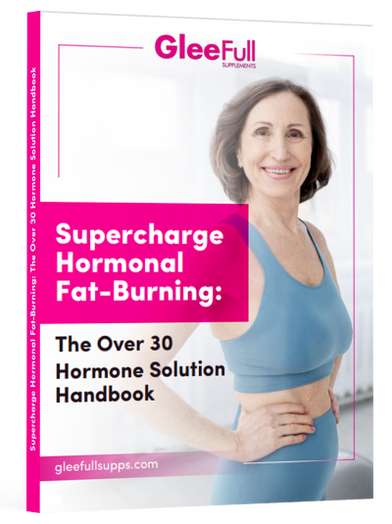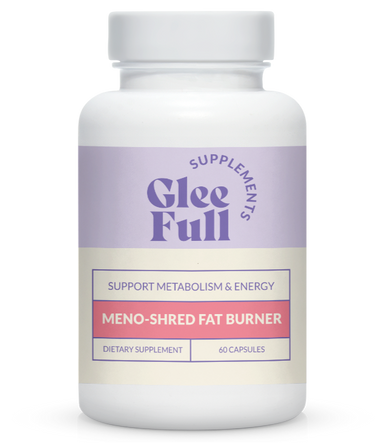Your Cart




Pre-Menstrual Syndrome (PMS) is a term that most women are all too familiar with. It refers to a combination of physical, emotional, and behavioral symptoms that occur in the days or weeks leading up to menstruation. For some, PMS is a mild inconvenience, while for others, it can significantly disrupt daily life. Understanding the causes, symptoms, and management of PMS can empower women to take control of their well-being.
What Causes PMS?
PMS is primarily linked to hormonal changes that occur during a woman’s menstrual cycle, particularly the fluctuation of estrogen and progesterone. After ovulation, progesterone levels rise, and if pregnancy doesn't occur, both progesterone and estrogen levels drop sharply. This sudden hormonal shift can trigger the various symptoms associated with PMS. Neurotransmitters like serotonin, which impact mood, may also play a role, particularly in emotional symptoms.
Other potential contributing factors include:
Common Symptoms of PMS
The symptoms of PMS vary widely from woman to woman. They generally fall into two categories: physical and emotional.
Physical Symptoms:
Emotional and Behavioral Symptoms:
The intensity of these symptoms can vary, and some women experience severe PMS known as Pre-Menstrual Dysphoric Disorder (PMDD), which requires more comprehensive medical intervention.
Managing PMS Naturally
While there's no cure for PMS, many natural approaches can alleviate symptoms and improve overall well-being.
Balanced Diet: A nutrient-dense diet rich in whole foods can help stabilize blood sugar and minimize cravings. Increase your intake of:
Herbal Supplements:
Exercise: Regular physical activity, even light exercises like walking or yoga, can relieve stress, boost mood-enhancing endorphins, and ease physical discomfort.
Stress Management: Practicing stress-reducing activities such as meditation, deep breathing, or journaling can help improve emotional symptoms.
Stay Hydrated: Drinking plenty of water can help reduce bloating and support better digestion. Herbal teas like chamomile or ginger tea can also soothe digestive discomfort and reduce cramps.
Quality Sleep: Ensuring a regular sleep routine and prioritizing 7-9 hours of quality sleep each night is crucial in managing the fatigue and irritability that often accompany PMS.
Natural PMS Support Supplements: Supplements like Mellow Mood PMS Support provide essential vitamins and ancient herbal extracts to combat mood swings, fatigue, and physical symptoms of PMS without caffeine or synthetic ingredients.
When to Seek Medical Advice
If your PMS symptoms are severe and significantly interfere with your daily life, it may be time to consult a healthcare provider. Conditions like PMDD or other hormonal imbalances may require medical treatment, including hormonal therapies, antidepressants, or lifestyle changes.
Understanding PMS in the Pre-Menopause Stage: What You Need to Know
As women enter their 40s, hormonal shifts that mark pre-menopause can throw your body into a whirlwind. This stage, often referred to as perimenopause, typically begins in a woman’s 40s but can start as early as her mid-30s. During this time, hormone production, especially estrogen and progesterone, fluctuates erratically, causing PMS (Pre-Menstrual Syndrome) symptoms to become more intense, unpredictable, and in some cases, completely new.
If you're noticing more pronounced mood swings, irregular periods, or increased fatigue, you're not alone. Understanding how PMS evolves during pre-menopause and how to manage it can make this transitional phase much more manageable.
How to Manage PMS During Pre-Menopause
While pre-menopause can feel overwhelming, there are many effective ways to manage PMS symptoms during this stage. Adopting a combination of lifestyle adjustments, natural supplements, and stress management techniques can make a huge difference.
Adjust Your Diet for Hormonal Support: What you eat has a significant impact on your hormone balance and how you experience PMS symptoms during pre-menopause. Consider adding these to your daily meals:
Medical Options for Managing PMS in Pre-Menopause
For women whose PMS symptoms during pre-menopause are severe or unmanageable, medical intervention might be necessary. Here are some treatments that healthcare providers often recommend:
Pre-menopause may feel like a turbulent time, but with the right knowledge and tools, it’s entirely possible to manage PMS and feel empowered during this transition. Start by listening to your body, prioritizing self-care, and exploring natural remedies to regain balance.
Introducing Gleefull's MellowMood PMS Support
If PMS has you feeling like you're on an emotional rollercoaster every month, Gleefull's MellowMood PMS Support is here to help you reclaim balance and calm.
🌸 Feel Calm and In Control
No more random outbursts, snapping at loved ones, or feeling on edge! MellowMood helps you stay cool, focused, and level-headed, even in those stressful situations that usually push your buttons. Whether it's a hectic day at work or the chaos at home, you’ll feel more grounded than ever.
🌿 Relieve PMS Symptoms – For Real
Imagine breezing through your month without the usual mood swings, cramps, bloating, or brain fog. MellowMood’s all-natural formula is packed with powerful herbs and vitamins that soothe both your body and mind. Finally, say goodbye to PMS taking over your life!
🌙 Balanced Moods, All Month Long
Why should calm only come in phases? With MellowMood, your hormones stay balanced, helping you feel mellow, happy, and collected every day—no matter where you are in your cycle. It's like having your own personal calm button at your fingertips.
If you’ve been struggling with PMS symptoms, Gleefull’s MellowMood PMS Support is the natural solution you’ve been waiting for. Try it today and enjoy a more peaceful, balanced month!
Final Thoughts
PMS is a common part of life for many women, but it doesn’t have to be debilitating. With a combination of diet, exercise, stress management, and natural supplements, you can manage PMS symptoms effectively and feel more in control of your body. By understanding your cycle and listening to your body, you can find the right combination of strategies that work best for you.